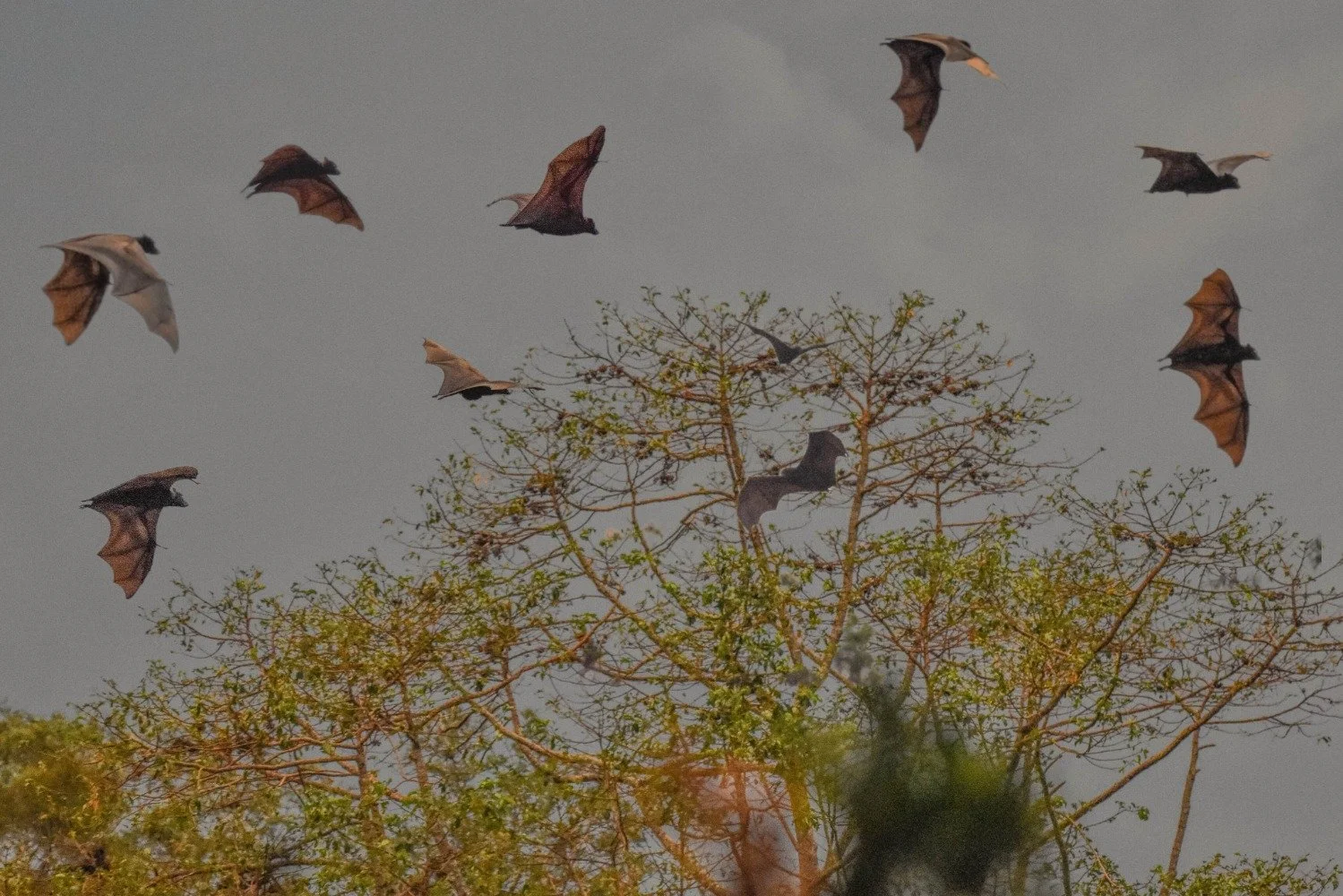Growing flying fox colony driving Witta residents batty
by Cameron Outridge
Frustrated residents of Gumland Drive in Witta are grappling with a growing flying fox colony that has been causing significant distress for over five years. The community reports issues such as foul odours, constant noise, and concerns over water contamination due to bat droppings on roofs feeding into their tank water systems.
Susan Haley, a resident of the affected area, expressed the impact on daily life. “We have not had our windows open for five years except on the odd occasion when there’s no smell. We can’t sit out on our deck,” she said. “The smell and the noise are overwhelming. The numbers have grown; the babies have been born now, so the colony has grown tenfold.”
Health concerns have escalated after a neighbour fell ill due to contaminated water. “We’re all on tank water here,” Mrs Haley explained. “We’ve got an ultraviolet system, which cost us $3500, because they poo on our roofs, and that all goes into our water tanks.”
Efforts to seek assistance from authorities have led to frustration. “Two years ago I was very close to a mental breakdown, then we went away for a while and then I seemed to calm down a lot,” she said. “And I’m a pretty strong person. But it got to the point where every time I was on the phone to DES or the council I would just break down in tears because I just ... well probably the frustration of the authorities just not helping me.”
The situation intensified when a neighbour reported some resident’s attempts to disperse the bats using light and noise. This led to the area being designated as a protected roost. “Once it was designated a roost, we couldn’t do anything without getting a fine,” Mrs Haley said.
Despite the risk of penalties, residents are considering resuming their efforts to relocate the bats. “We’ve come to the stage now where, if we’ve got to pay a fine, we’ll pay it. If we’ve got to go to jail, we’ll go to jail.”
The colony’s presence has also affected property values, with residents concerned about the inability to sell their homes. “This area has a lot of ageing people, they want to sell and down-size or go into care homes. But because of these bats none of us can sell. There’s no way that we could get a fair price for our houses at the moment,” Mrs Haley said. “I mean, I’ve lived here for 10 years now and volunteer in a lot of groups around Maleny and Witta. So I get to talk to a lot of people and there’s no way on earth that we could get a buyer for our houses at the moment.”
Attempts to engage with local representatives have so far been unproductive. “I’ve gone to the state government, I’ve gone to the council. The state government says it’s the council’s responsibility, and the council says it’s the state’s responsibility,” she said.
The residents are calling for a resolution that balances the protection of wildlife with the well-being of the people and protects their houses’ values. “We don’t want to kill them,” Mrs Haley said. “But having them all around our houses is just insane. It’s out of control.”
Health concerns
Another resident said the colony was directly affecting her health. “It’s not good to live with so many bats close by,” she said. “This has been proven so it’s hard to know why people promote and tolerate them. I’m sorry to hear that some of my neighbours are not doing well mentally and I hope that I can overcome the problems I am experiencing. People don’t understand how noisy and smelly the bats are. They belong in national parks, not in suburbs with kids and dogs.
“I have three different inhalers now because of my asthma. The bat colony is causing a serious health hazard.
“I kept coughing and coughing and my friends thought I had COVID. After a doctor examined me, they found tiny bat hairs in my lungs, which must have been lingering in the air for years.
“I used to spend hours gardening and weeding every weekend. That may have contributed to the problem. I’ve now stopped going outside until the government sorts this out.
“It has affected me mentally and spiritually. I was always fit and never got sick before, and I used to travel without needing to carry an inhaler everywhere.”
Residents hope that bringing attention to their situation will prompt action from the relevant authorities to address the flying fox issue in Witta.
Minister responds
MP for Glass House, and newly appointed Minister for the Environment and Tourism, Science and Innovation Andrew Powell said his Department has been working with the community and Sunshine Coast Regional Council for a number of years to manage the impacts of the Witta flying fox roost.
“The landholder on whose property the roost is located has the option to apply for a flying-fox roost management permit from the Department, at no cost.
“This allows for non-lethal measures for managing the roost – including dispersing the roost or modifying a part of the roost through tree trimming or removal of roost trees.
“Disturbance measures include the use of smoke, noise, light, foggers, drones and water sprinklers.
“I understand landowners cannot be compelled to manage their property in a certain way, but my Department is ready to help the community and Council to handle this issue,” said Mr Powell.

